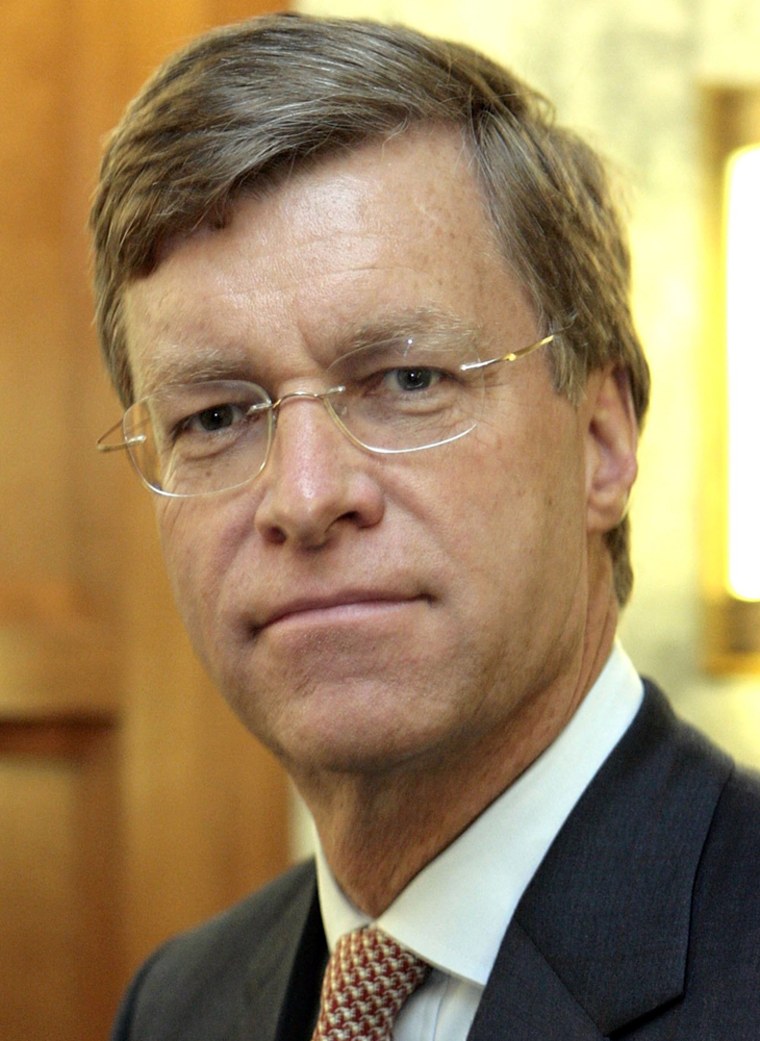Bristol-Myers Squibb Co. on Tuesday ousted Peter R. Dolan as chief executive at the urging of a federal monitor, who found that the drug maker’s patent deal with a generic competitor violated an agreement with prosecutors.
Bristol-Myers named board member James M. Cornelius as interim CEO effectively immediately. Cornelius served as chairman of the board and interim CEO at medical-device maker Guidant Corp. from September 2004 through April 2006, after decades at drug maker Eli Lilly and Co.
Also, Bristol-Myers General Counsel Richard K. Willard will leave the company. A federal monitor recommended at a board meeting Monday that the company fire both Dolan and Willard. Dolan has been CEO since 2001, and Willard was appointed general counsel in October.
Sandra Leung, the company’s corporate secretary, was named interim general counsel, and will be aided by former FBI Director Louis J. Freeh, a board member and former general counsel.
Bristol-Myers Squibb shares rose in midday trading on the New York Stock Exchange, receding from an earlier 4.6 percent spike after the news broke. The stock has lost 11 percent since hitting its 52-week high of $26.14 on July 25.
The company confirmed reports that Judge Frederick B. Lacey recommended the firings, and that Christopher J. Christie, U.S. Attorney for New Jersey, concurred. Both Lacey and Christie attended a meeting of the board late Monday.
Lacey was appointed monitor of the New York-based company in June 2005 after Bristol-Myers settled federal charges for an accounting scandal that ended up costing the company $800 million. Under the agreement, charges would be dropped against the company if it met certain standards until 2007.
The last straw
The apparent last straw was Dolan’s and Willard’s conduct stemming from a failed agreement between Sanofi-Aventis, Bristol-Myers’ partner for the drug Plavix, and Canadian drug maker Apotex Inc. to keep a lower-priced generic version of the best-selling blood thinner off the market. The agreement soured when state attorneys general refused to sign off on it.
As a result, Apotex launched generic Plavix in early August, and quickly grabbed about 75 percent of new prescriptions. Plavix is the second best-selling drug in the world, with annual sales of about $5.9 billion.
The Plavix agreement also fell under a federal criminal investigation, leading FBI agents to raid Bristol-Myers’ offices, including Dolan’s, in New York. In the meantime, a judge halted further sales of Apotex’s generic version of Plavix but declined to order a recall, leading some to believe there could be generic product on the market well into 2007.
Some Wall Street analysts had insisted the board cut its losses now and fire Dolan, believing the Plavix agreement was not an isolated incident. Critics also point to the accounting scandal, expensive investments in drugs like ImClone Systems Inc.’s Erbitux cancer drug, and failed pipeline drugs like the blood pressure medication Vanlev and diabetes treatment Pargluva.
Dolan’s firing is the latest in a recent housecleaning trend in Big Pharma. Pfizer Inc. replaced CEO Hank McKinnell in July, and Merck & Co.’s CEO Raymond Gilmartin vacated his post early last year.
Bristol-Myers’ board is expected to approve the company’s high-profile dividend at the meeting. In June, the company declared a quarterly dividend of 28 cents per share. But some analysts have suggested that lost sales of Plavix could pressure the board to cut the dividend by nearly a half.
